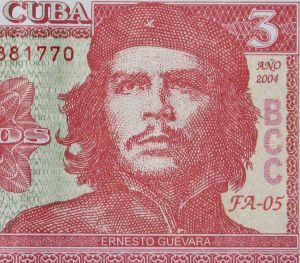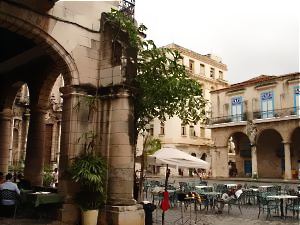 A bill will be introduced into the U.S. Senate today that aims to remove travel restrictions for any American who wishes to travel to Cuba, not just those who have relatives there.
A bill will be introduced into the U.S. Senate today that aims to remove travel restrictions for any American who wishes to travel to Cuba, not just those who have relatives there.
The primary proponents of the Freedom to Travel to Cuba Act 2009 are Senators Byron Dorgan (D-North Dakota), Christopher Dodd (D-Connecticut) and Richard Lugar (R-Indiana), who said that the 47-year-old travel ban should be lifted because it had failed to achieve its stated aim of bringing democracy to Cuba.
Earlier this month, as part of the omnibus spending bill, the Obama administration passed a law easing travel rules for Cuban-Americans wanting to visit family members on the island, a move some saw as a precursor to a further softening of travel policy.
Many Democratic legislators have been eager to lift the ban for years, but were hampered by their minority status in Congress. The bill was last introduced into Congress two years ago but died in committee. However, now that Democrats hold majorities in both houses, they feel the bill has a greater chance of passing with bipartisan support.
In a draft report issued in February by Lugar’s office, the Senator said that both the travel ban and economic sanctions against Cuba needed to be reconsidered. He noted that sanctions may be effective at pressuring some regimes to change their policies, as in South Africa during the apartheid era, but it was an “abject failure” in Cuba.
Furthermore, some supporters of lifting the ban note that U.S. citizens are able to travel to other Communist countries, including China, Vietnam and even North Korea.
 That does not mean that the bill is without detractors. Cuban-American Senator Robert Menendez, (D-New Jersey) staunchly opposes lifting the ban and the embargo, because he believes that the Castro regime uses the resources it earns through free trade and tourism with other countries to become more oppressive.
That does not mean that the bill is without detractors. Cuban-American Senator Robert Menendez, (D-New Jersey) staunchly opposes lifting the ban and the embargo, because he believes that the Castro regime uses the resources it earns through free trade and tourism with other countries to become more oppressive.
He noted that people and governments from Europe to Canada to South America have spent billions of dollars visiting and investing in Cuba, but communism persists.
However, many feel that Menendez’s hardline ideological stance is outdated, especially considering that the handover of power to Fidel Castro’s younger brother Raul—who is seen as less doctrinaire and more pragmatic—presents more opportunities for dialogue and change.
The upcoming Summit of the Americas in Trinidad and Tobago, which the U.S. and 22 other nations will attend, could be a prime opportunity for America to further redefine its relationship with Cuba.
 One question that remains is whether opening the doors to Cuba would actually cause the country to lose its appeal for American travelers, and whether it would change the “unspoiled” character of the country.
One question that remains is whether opening the doors to Cuba would actually cause the country to lose its appeal for American travelers, and whether it would change the “unspoiled” character of the country.
Cuba currently has a reputation as a juicy “forbidden fruit” destination because of the travel ban, which may dissipate once the floodgates open. And some fear that creeping commercialization will also make the country less interesting.
Currently there is only one McDonald’s on the island, at the Guantanamo Bay military base. But that is sure to change if cruise ships and resorts start bringing large numbers of Americans to the island—particularly if the trade embargo is also lifted.
By Karen Elowitt for PeterGreenberg.com.
Related links: Washington Post, CNN, Latin American Herald-Tribune
Related links on PeterGreenberg.com:












